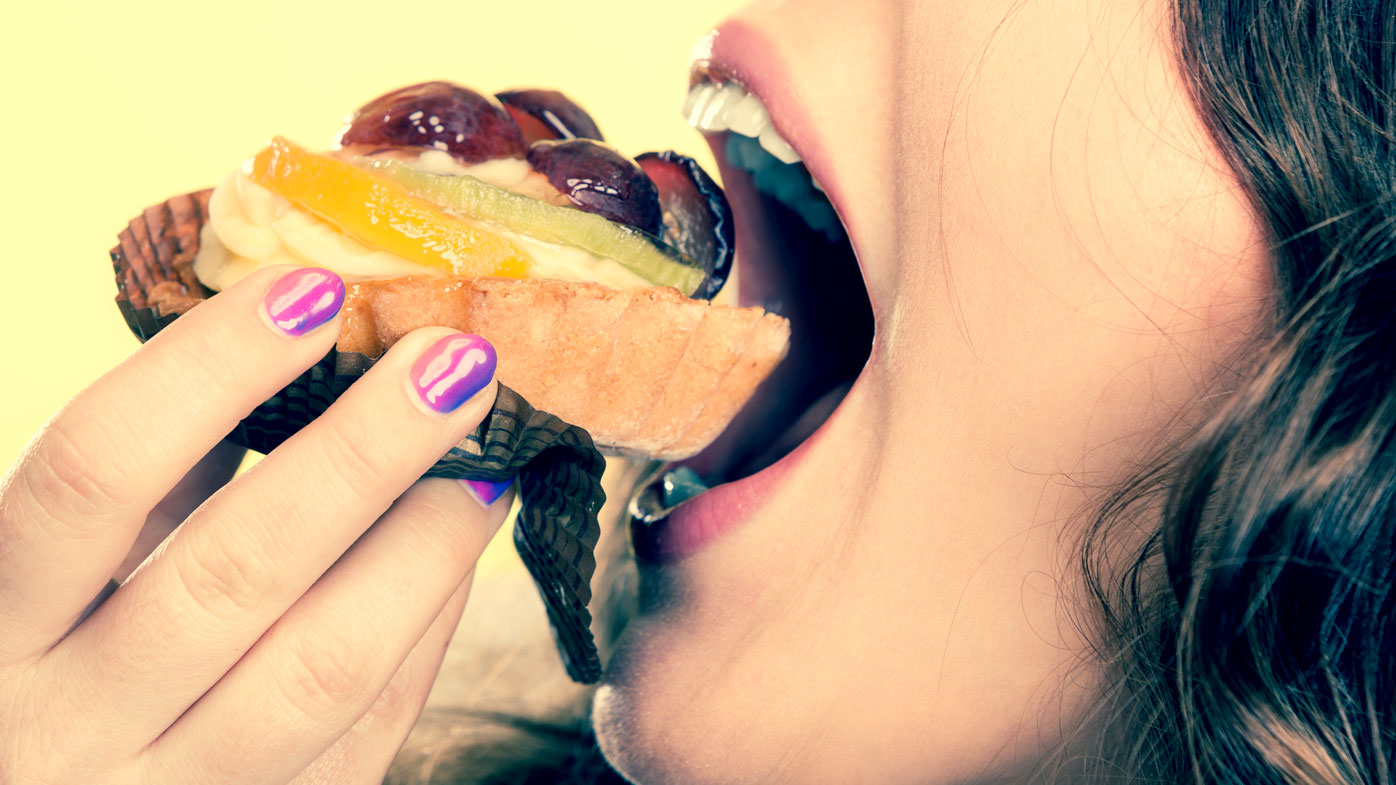Man needs food to satisfy his hunger. But it’s no secret that it is also a source of pleasure. We all overuse our favorite foods sometimes, especially on holidays. However, addicted people do it all the time.
Food addiction is a subconscious violation of the essence of food intake. In this case, food is seen not as a means to satisfy hunger but as the main and practically the only way to get psychological satisfaction.
Read also: How To Get Rid Of Kidney Stones With Food
According to doctors, the behavior of people with food addiction is somewhat similar to the behavior of drug addicts. They reach out for their favorite foods to relieve stress. They need food primarily to cope with anxiety, stress or to get pleasant emotions. Such people often blame themselves for overeating.
It has been proven that in the brains of people with food addiction, similar chemical processes are noted, as in alcoholics and drug addicts. A person with a food addiction, like an alcoholic, is ready to eat until the house runs out of food. Over time, they develop an addiction to food, and the body is not satisfied with the same amount of food.
But food addiction does not necessarily mean that a person is overweight. If a person is obsessed with harmful but favorite foods, then his diet mainly consists only of them. Calorie restriction will help a person with this type of food addiction maintain a normal weight, but his health will suffer from a lack of nutrients. The body will become flabby, the skin dull, the hair will begin to fall out, and teeth will crumble.
How to suspect you have a food addiction?
There is no single criterion for defining a “food addict.” But if you notice the following symptoms in yourself, you should seriously think about whether you have become addicted to food.
– An urgent need for a favorite product (s). Moreover, to achieve the desired emotional state, more and more of it is required.
– Constantly increasing portions of your favorite foods. A constant companion of people with food addiction is overeating. Do you feel like you are eating too much and, as a rule, junk food? If your portions are constantly increasing, it’s time to sound the alarm.
– Hunger is accompanied by anxiety. As a rule, the feeling of hunger is normally not accompanied by psychological discomfort. But people with food addiction often become anxious, nervous if they feel hungry.
– Anxiety about food. The food addict is constantly focused on food. His thoughts are occupied with questions of what to eat, buy, or cook better.

– Unsuccessful attempts to cope with food addiction. You jump from one diet to another without noticeable success, and after a failed attempt, bouts of gluttony begin.
– A person with food addiction is characterized by feelings of guilt or shame for their behavior. If, after overeating, you cleanse the body of what has been eaten through vomiting or laxatives, this is a very dangerous symptom.
Also read: Learn How To Love Yourself: 10 Tips
– A person obsessed with his favorite foods cannot refuse them, even if the consequences of addiction are already on the face – overweight, gastrointestinal diseases, or other problems. He may even start stealing other people’s food or hiding food to make sure there is enough of it.
How to deal with food addiction?
If your relationship with food is overstepping the boundaries of reason, treatment is indispensable. Psychotherapy and a specially selected diet help to cope with food addiction.
To help yourself deal with this problem, try these tips.
– Try to avoid annoying factors like favorite foods. Ask your family not to bring them into the house and not eat them in your presence.
– Optimize your diet
– Find like
– Learn to manage stress (through music, exercise, meditation).
Adapted and translated by Wiki Avenue Staff
Sources: Today Lifestyle






